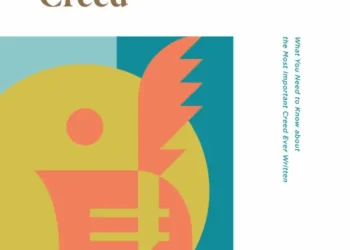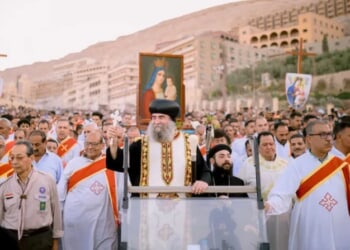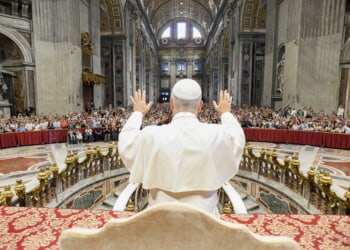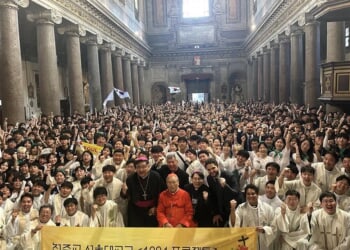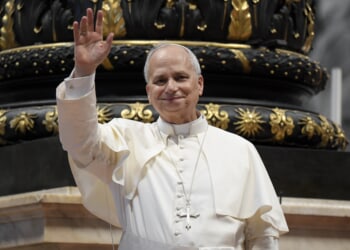Vatican City, Sep 18, 2025 /
10:08 am
Pope Leo XIV, in his first interview since his election, signaled he may be open to future changes to the Vatican’s controversial deal with China, saying that he is in dialogue with persecuted Chinese Catholics as he weighs the future of Vatican policy toward Beijing.
The interview, conducted in English in July and published Thursday in a new Spanish-language biography, provides the clearest view yet of the 70-year-old American pope’s priorities in global politics and Vatican diplomacy, including how he sees the Church engaging with the Trump administration, the war in Gaza, and the defense of human dignity.
On China, Pope Leo said he is listening to “a significant group of Chinese Catholics who for many years have lived some kind of oppression or difficulty in living their faith freely” as he tries to get “a clearer understanding of how the Church can continue the Church’s mission.”
“I would say that in the short term, I will continue the policy that the Holy See has followed for some years now … I’m also in ongoing dialogue with a number of people, Chinese, on both sides of some of the issues that are there,” he said.
As the first pope ever to have visited mainland China, Leo, who traveled there years before his election, said he draws on his experiences with “government as well as religious leaders and laypeople.”
Leo’s comments indicate openness to a possible shift from the status quo on China since 2018, when the Holy See signed a power-sharing agreement with Beijing on the appointment of bishops. The agreement was renewed under Francis three times in the past seven years despite objections from human rights activists and reports of increased persecution of the so-called underground Church in China, which rejects government control.
“It’s a very difficult situation. In the long term, I don’t pretend to say this is what I will and will not do,” he said.
American pope on U.S. politics
Pope Leo XIV also spoke about President Donald Trump, Vice President JD Vance, and Elon Musk, while insisting that he does not want to take part in political battles.
“I don’t plan to get involved in partisan politics. That’s not what the Church is about. But I’m not afraid to raise issues that I think are real Gospel issues, that hopefully people on both sides of the aisle, as we say, will be able to listen to,” he said.
The Chicago-born pope suggested that his background gives him an advantage in dealing with other Americans, including members of the Church. Referring to relations between the Vatican and U.S. Catholic bishops, he said: “The fact that I am American means, among other things, people can’t say, like they did about Francis, ‘He doesn’t understand the United States.’” Under his predecessor Pope Francis, the U.S. bishops’ conference clashed with the Vatican over the bishops’ designation of abortion as the “preeminent priority” of their public policy agenda.
Leo said he would not hesitate to meet with Trump if the opportunity arose and said he has already spoken with Vance “about human dignity and how important that is for all people, wherever you’re born, and hopefully to find ways to respect human beings and the way we treat them in the policies and choices we make.”
“Obviously, there’s some things going on in the States that are of concern,” Leo added.
Applauding Pope Francis’ letter to U.S. bishops earlier this year criticizing the Trump administration’s policy on deportation of immigrants, he said: “I was very happy to see how the American bishops picked that up, and some of them were courageous enough to go with that. I think that approach, in general, is a better approach, that I would engage with the bishops primarily.”
“The United States is a power player on the world level, we have to recognize that, and sometimes decisions are made more based on economics than on human dignity and human support,” Leo said. “But [we have to] continue to challenge and to raise some questions and to see the best way to do that.”
“Especially about questions of human dignity, of promoting peace in the world, which [Trump] at times has made clear he wants to do, in those efforts I would want to support him,” he said.
(Story continues below)
Subscribe to our daily newsletter
Elon Musk, inequality, and artificial intelligence
Pope Leo XIV also mentioned Elon Musk, reserving some of his sharpest words for economic disparities and the potential “crisis” that could result from the rise of artificial intelligence.
“One … very significant [factor] is the continuously wider gap between the income levels of the working class and the money that the wealthiest receive,” he said. CEOs once earned a few times more than workers, but today “the last figure I saw, it’s 600 times more.”
He pointed to reports that “Elon Musk is going to be the first trillionaire in the world,” warning: “If that is the only thing that has value anymore, then we’re in big trouble.”
Leo also cautioned that artificial intelligence could cause a “crisis” because of its potential to accelerate shifts in the labor force. “If we automate the whole world and only a few people have the means with which to more than just survive, but to live well, have meaningful life, there’s a big problem, a huge problem coming down the line.”
Wars in Gaza and Ukraine
Pope Leo weighed in on the debate over whether Israel’s campaign in Gaza constitutes genocide, with the pope noting that “the word genocide is being thrown around more and more.”
“Officially, the Holy See does not believe that we can make any declaration at this time about that,” he said. “There’s a very technical definition about what genocide might be, but more and more people are raising the issue, including two human rights groups in Israel have made that statement.”
Leo emphasized the importance of getting humanitarian aid, medical assistance, and food to people in Gaza, noting that the U.S. is “obviously the most significant third party that can place pressure on Israel.”
On Ukraine, Leo confirmed the Vatican had offered to host peace talks, though the offer was not accepted. “The Holy See, since the war began, has made great efforts to maintain a position that, as difficult as it might be, [is not] one side or the other, but truly neutral,” he said.
He also suggested that the Vatican might be able to help end a schism within the Orthodox world, between the patriarchs of Moscow and Constantinople, arising from disagreements over Orthodox Church leadership in Ukraine.
“If the bishop of Rome can help build bridges … I think there is certainly challenges in that, but a great service to be offered because ultimately, we do all believe in Jesus Christ, the Son of God, and Our Savior.”
A weakened U.N. and a polarized world
Leo acknowledged the declining role of the United Nations and the shift to bilateral dialogue in international relations. “It seems to be generally recognized that the United Nations, at least at this moment in time, has lost its ability to bring people together on multilateral kinds of issues,” he said.
He also pointed to polarization worldwide, citing a “loss of a higher sense of what human life is about.”
“The value of human life, the value of society, of the family … if we lose the sense of those values, what matters anymore?” he asked. “You oftentimes find people questioning: What is this all about and what is the meaning of life, and why should we be doing this?”
The pope is not a ‘solver of the world’s problems’
The interview appears in the Spanish-language book “León XIV: ciudadano del mundo, misionero del siglo XXI” (“Leo XIV: Citizen of the World, Missionary of the XXI Century”), a biography by Crux correspondent Elise Ann Allen, published on Sept. 18 in Spanish by Penguin Peru. English and Portuguese editions are expected in 2026.
In the book, Pope Leo, a longtime missionary in Peru before he was pope, underlines that the Church’s primary mission remains spiritual, not political.
“My role is announcing the good news, preaching the Gospel,” he said. “I don’t see my primary role as trying to be the solver of the world’s problems. I don’t see my role as that at all, really, although I think that the Church has a voice, a message that needs to continue to be preached, to be spoken and spoken loudly.”




